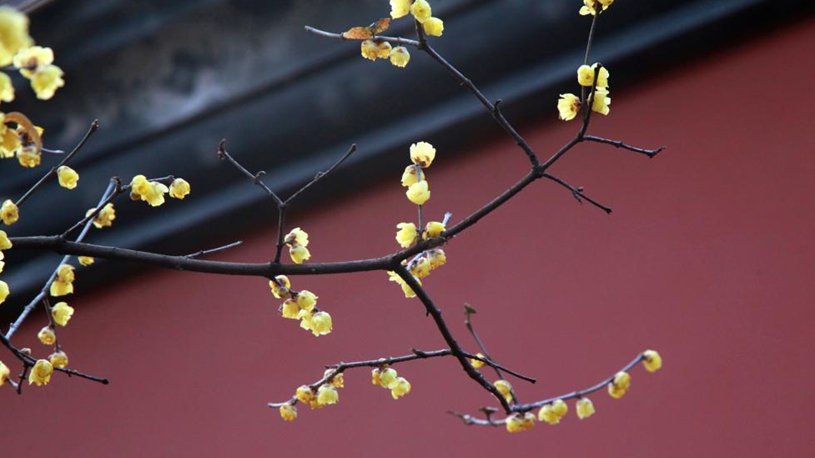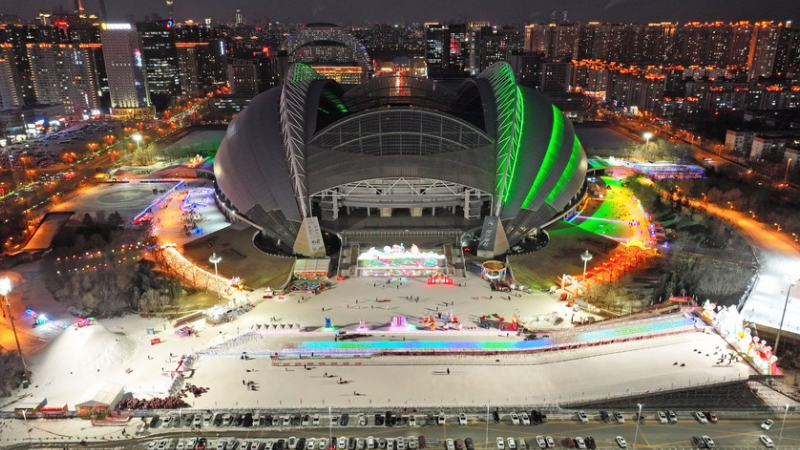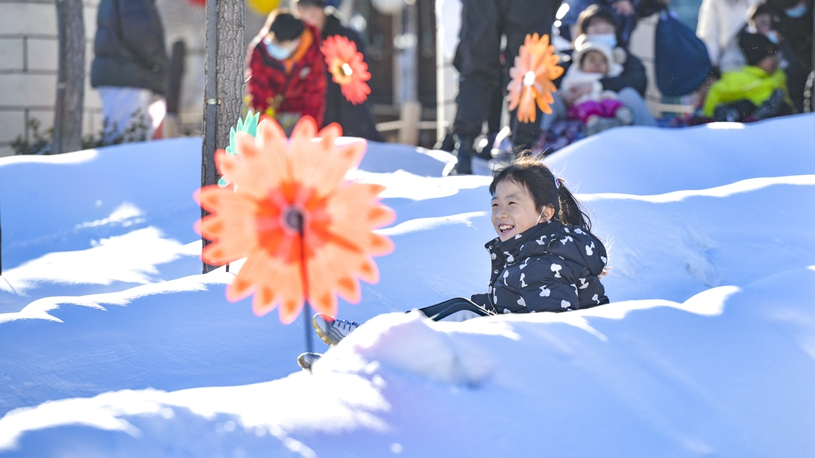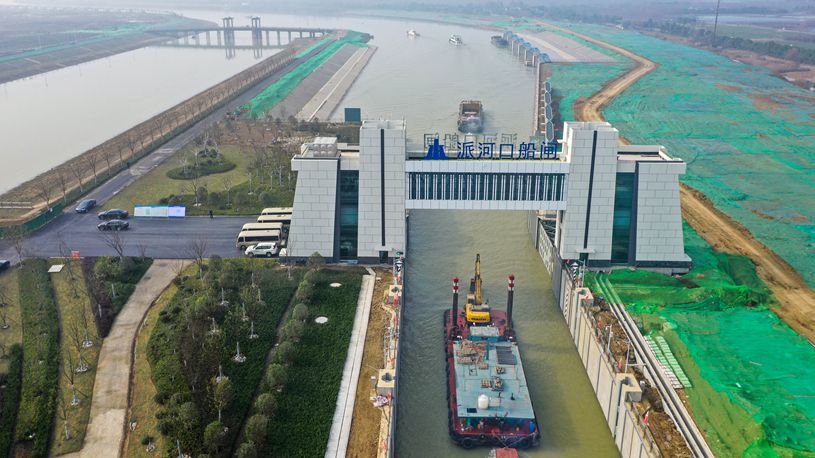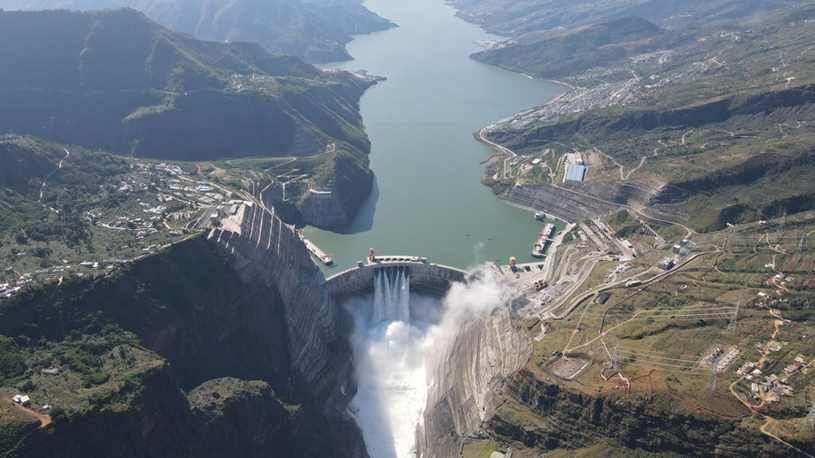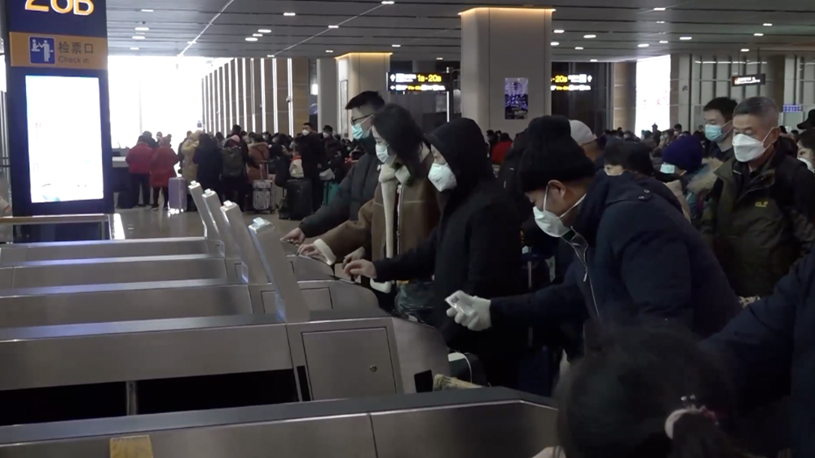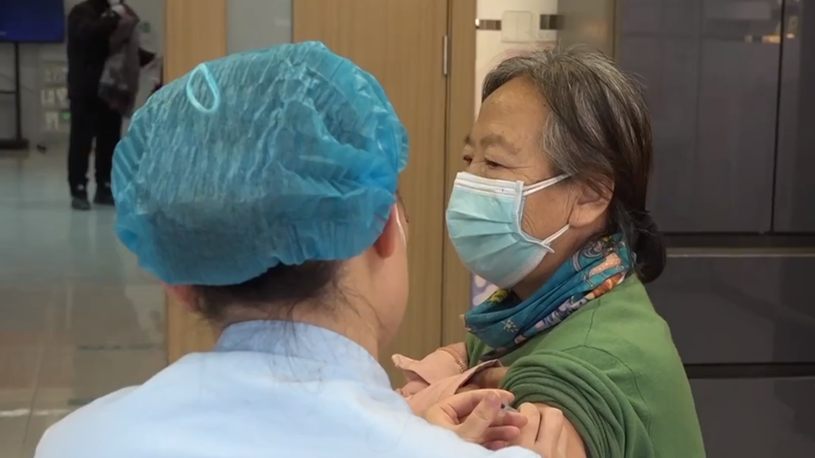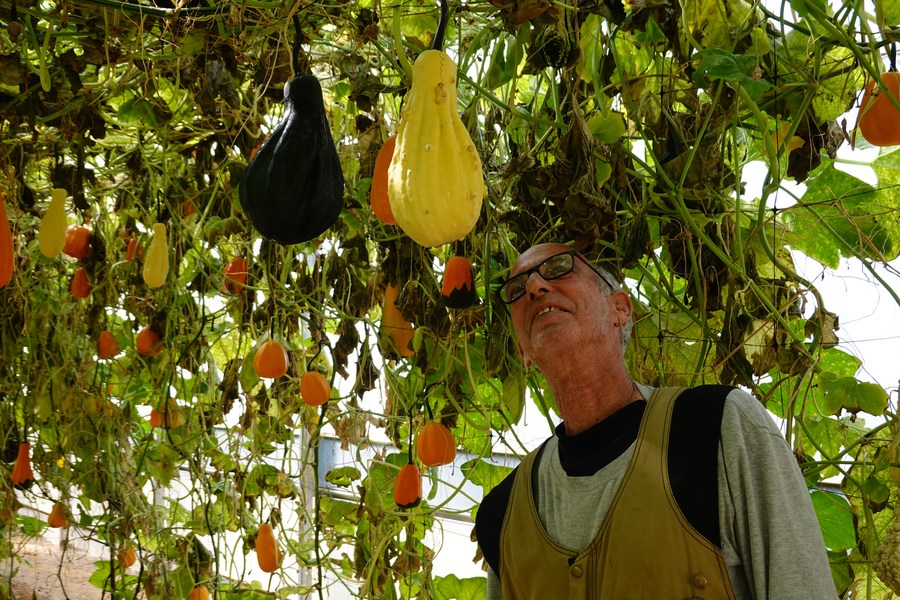
A staff member examines greenhouse vegetables at the Vidor Center experimental farm in Israel's southern desert region of Arava on Nov. 30, 2022. (Xinhua/Wang Zhuolun)
by Xinhua writer Wang Zhuolun
JERUSALEM, Jan. 8 (Xinhua) -- Driving through the Negev Desert in southern Israel is a more enjoyable experience than you might imagine because the sand-dominated uphills and downhills lack no colorful surprise: camel grass, trees of lush palm dates and apricots, and cactus with vibrant fruit, dotting the dry lands and showing unique life resilience.
The desert surrounds parts of the shores of the Dead Sea, the lowest land-based elevation on Earth. The waters of the hyper-saline lake are about 10 times saltier than those of the normal ocean, making it a harsh environment for all life and agricultural activities near the lake.
However, not far away from the southernmost tip of the Dead Sea, a wide variety of daily consuming vegetables thrive in apparent defiance of such unfavorable conditions.
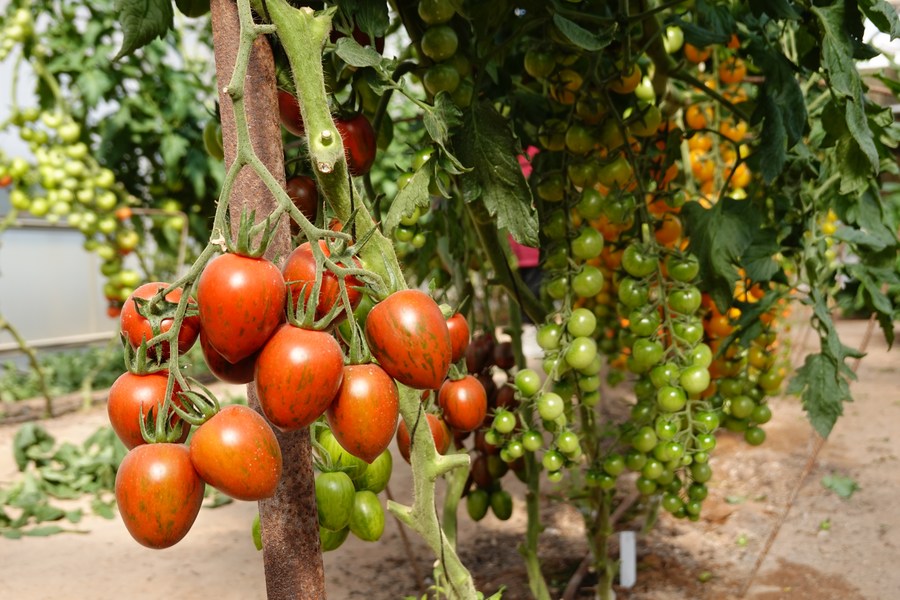
Photo shows green house vegetables at the the Vidor Center experimental farm in Israel's southern desert region of Arava on Nov. 30, 2022. (Xinhua/Wang Zhuolun)
In the greenhouses of an experimental farm called Vidor Center where scientists regularly conduct innovative agricultural research, the bright-colored peppers, watermelons, berries, onions, aubergines, and tomatoes are all full of vitality, showcasing how vegetables can be planted in arid lands and soil of high salinization.
The soil nourishing the vegetables, which is about 50 to 60 cm deep, was transplanted from elsewhere, and with drip irrigation and fertigation - the application of fertilizers or nutrients into a farming system through the irrigation network, the yield is maximized, said Naftali Lazarovich, a professor at Israel's Ben-Gurion University of the Negev specializing in dryland agriculture.
According to Israeli media reports, drip irrigation waters 75 percent of crops in the country, while only 5 percent of farms worldwide utilize the technology because of technological and financial barriers.
To save water and achieve digital management of precision farming, a large number of sensors are applied on the ground, with all data unremittingly being uploaded to the cloud, Lazarovich told a group of international agricultural experts inside a greenhouse with inviting ripe green peppers.
"When the climate is demanding, we need to irrigate differently, and this is one of the challenges here. We use sensors in the soil to estimate the water content in different locations, and in this way, it would help us schedule irrigation smartly," he said.
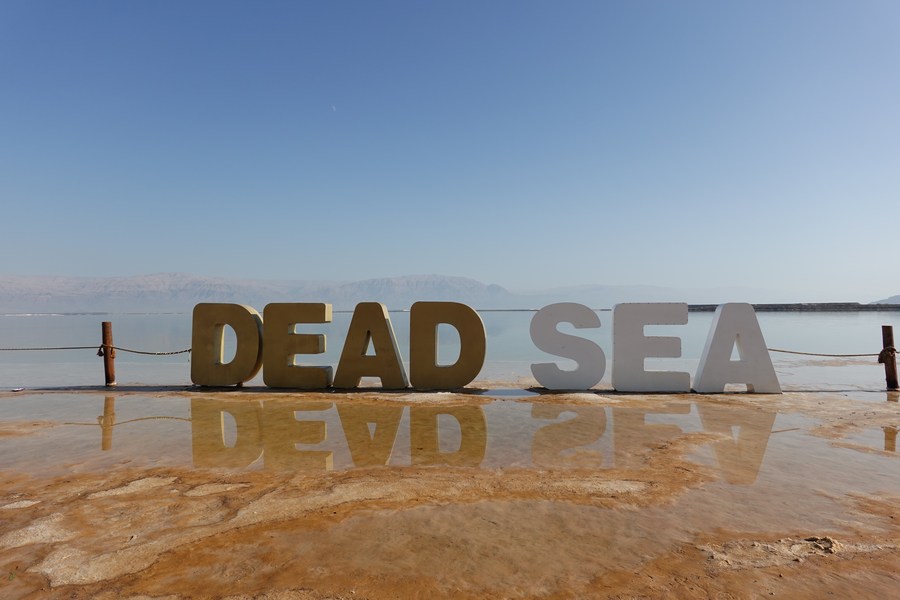
Photo shows the Dead Sea at Ein Bokek, Israel, on Nov. 30, 2022. (Xinhua/Wang Zhuolun)
Through remote control on mobile phone applications and computers, farmers can always monitor the growth of crops and make timely adjustments, Lazarovich added.
The experts came all the way from different parts of the world for a conference themed "Dry Lands, Deserts and Desertification" held by Ben-Gurion University of the Negev.
The unique environment and ecological system around the Dead Sea provide rich samples for agricultural research and attract specialists from around the globe to exchange experiences and delve into solutions to optimizing agricultural production.
Compared with the rarely-seen colorful and succulent vegetables, the date palm trees, the typical heat-resistant variety on dry lands, are more visible near the Dead Sea. Surprisingly, researchers have found that dates grown in the area can be even sweeter, juicier, and more aromatic than those in normal dry lands, said Oded Friedman, an Israeli date palm tree-planting expert.
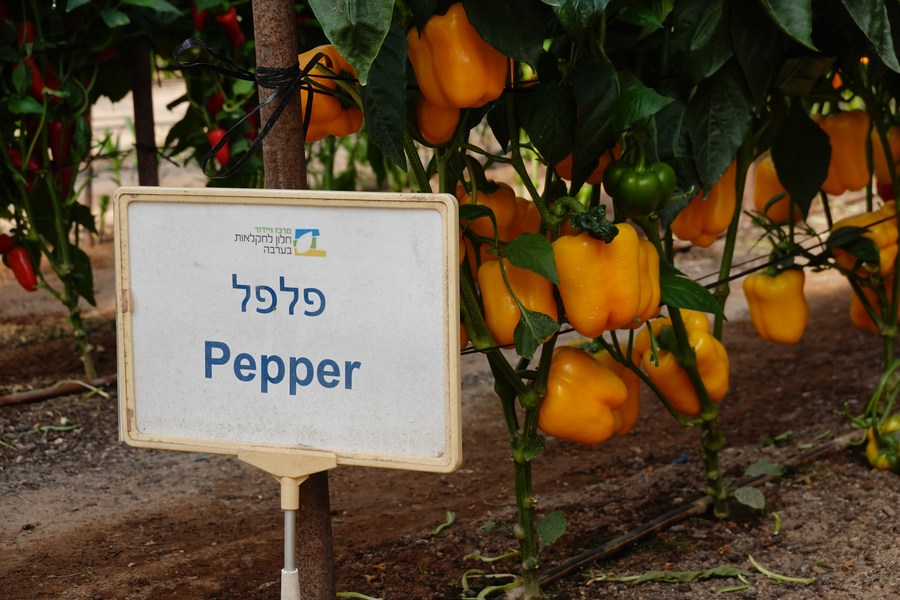
Photo shows green house vegetables at the the Vidor Center experimental farm in Israel's southern desert region of Arava on Nov. 30, 2022. (Xinhua/Wang Zhuolun)
Of course, high-tech methods still make a difference. A closer look at the date palm trees will find that many of them are embedded with tubes parallel to the ground as if they are receiving "acupuncture treatment."
According to Friedman, they are micro-sensors used for accurate monitoring, each containing two probes, one for heating and the other for measuring temperature difference.
"The salty soil makes irrigation applied to the date palm trees about twice the normal amount, and the nitrogen application in fertilizers is about 50 percent less efficient. However, we are always on the way to make the results better," said Friedman. ■

